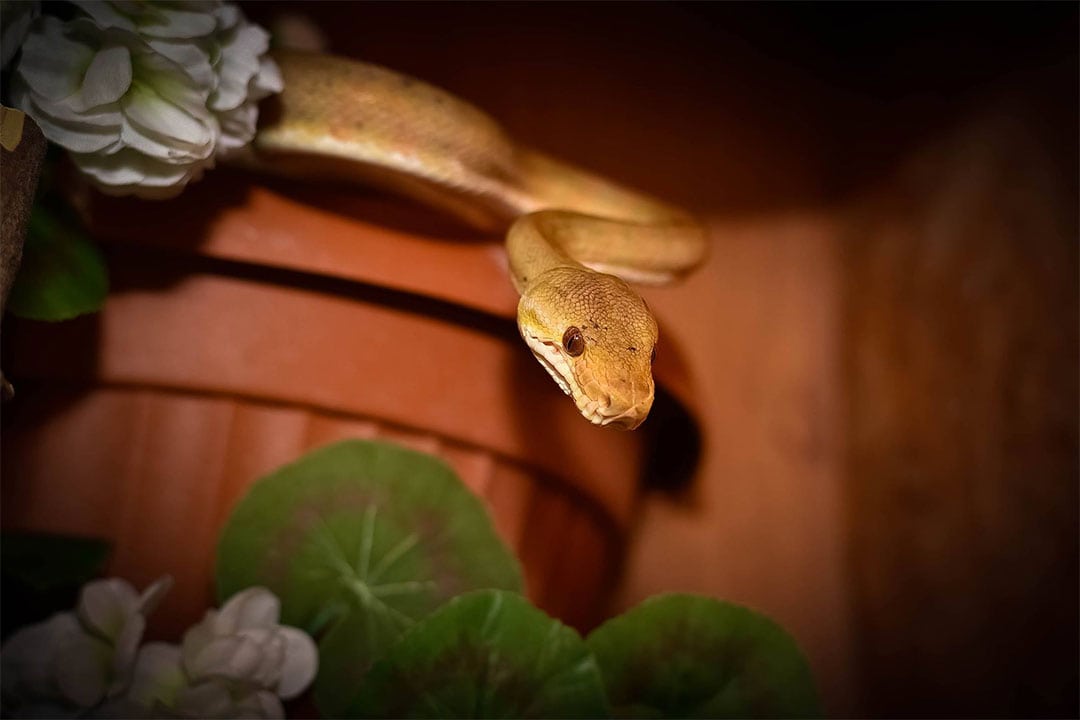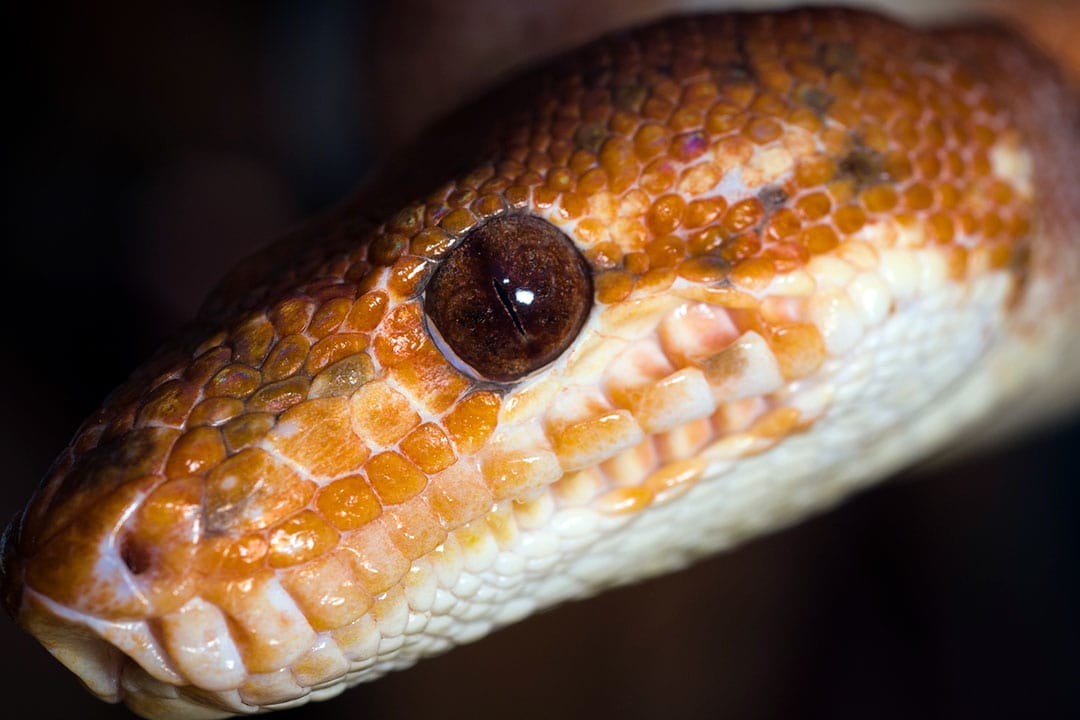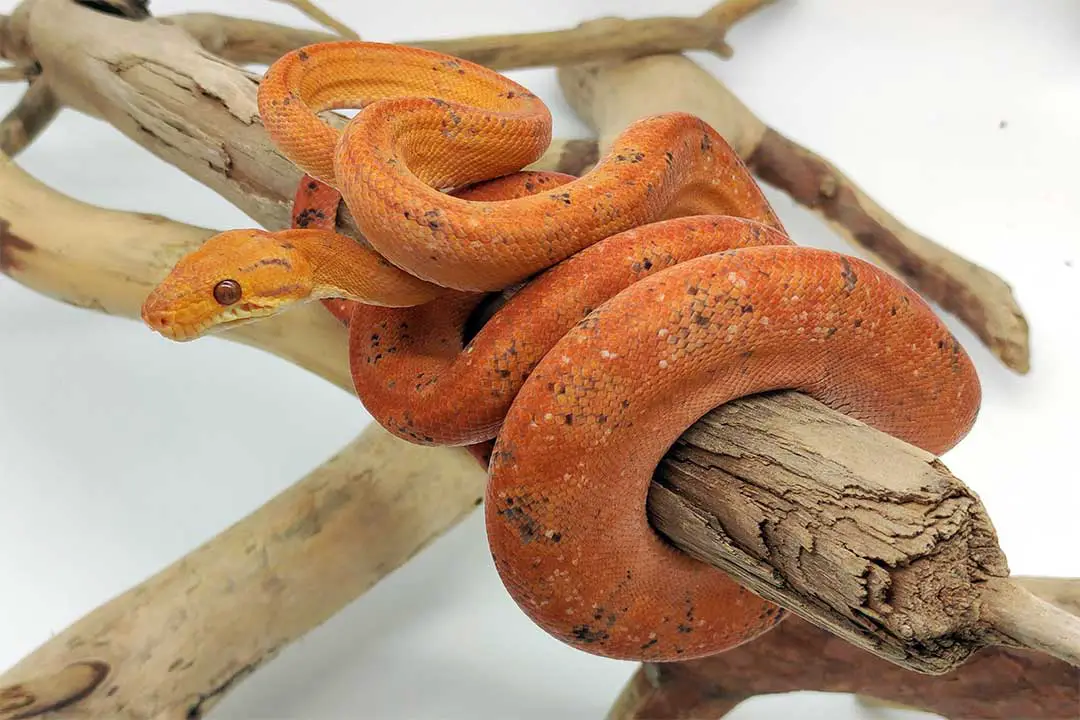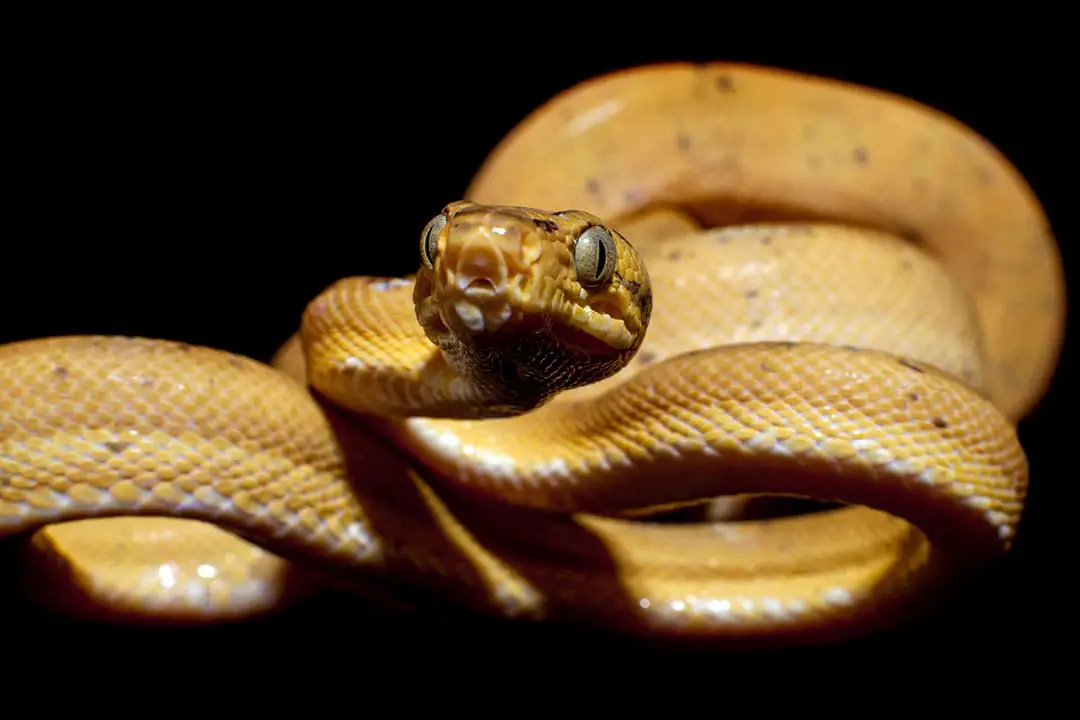The Amazon tree boa (Corallus hortulanus) is a beautiful snake. These arboreal animals are becoming increasingly popular in the pet trade. That leaves a question. Do Amazon tree boas make good pets?
On average, Amazon tree boas are good display pets. They are defensive and typically dislike too much handling. If you want a snake to admire, they are a good pet. If you want to interact with your snake, there are better choices.
A Defensive Animal
Amazon tree boas are famous for how defensive they are. They are frequently labeled aggressive because of how often they tend to bite their owners. Wild-caught animals are very difficult to tame.
Most will stay fairly defensive even if they learn to tolerate you.
Captive-bred animals are a bit more likely to tolerate handling, since most have been handled from a young age. They are also very aggressive feeders.
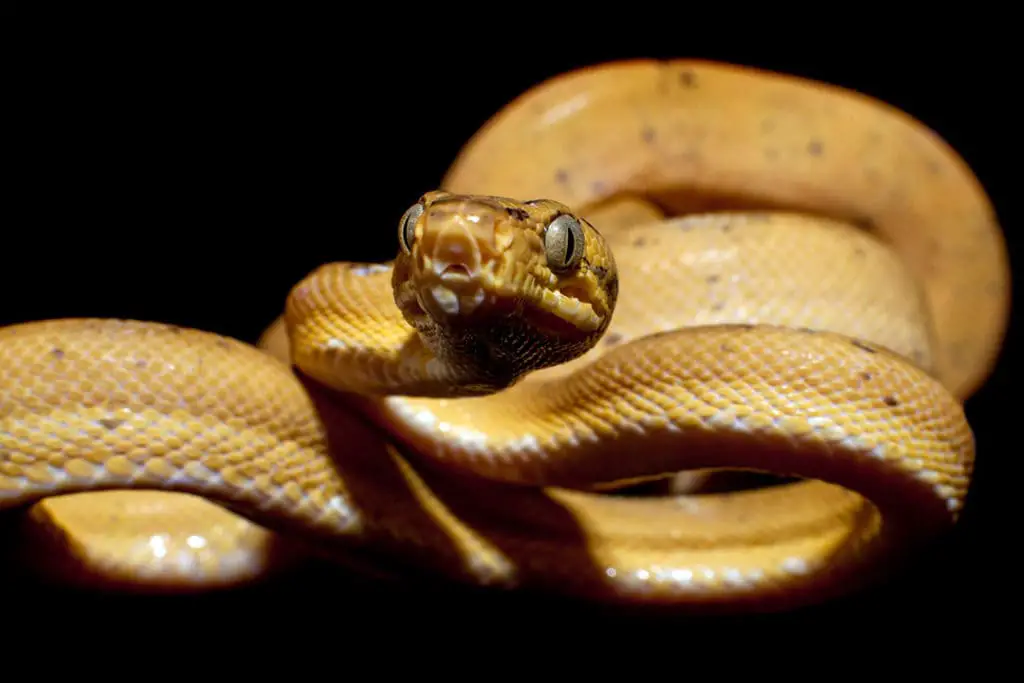
Everything you need to know about caring for Amazon Tree Boas in captivity:
Read our Amazon Tree Boa Care Sheet (Complete Guide)
Most will strike at anything warm. This includes your hands. They are most likely to bite at night, since they hunt at night in the wild. They are not a snake that will chill out with you. Even the tamest specimens shouldn’t be out of their enclosure for too long. Since these snakes are from the neotropics, room temperature is cold and dry for this species.
Different Requirements
This species is not for beginners. Not only are they not docile as a rule, they need special care.
We will not go over a full care sheet in this article because we published one here, but this is a quick review of why you should have some experience with snakes before you acquire an Amazon tree boa.
They require somewhat high temperatures. They need in the high 80s for the warm side. If you live in a cold climate, this can be a struggle to maintain.
Unlike snakes from temperate regions, you can’t induce brumation to help your snake survive lower temperatures. They also require high humidity.
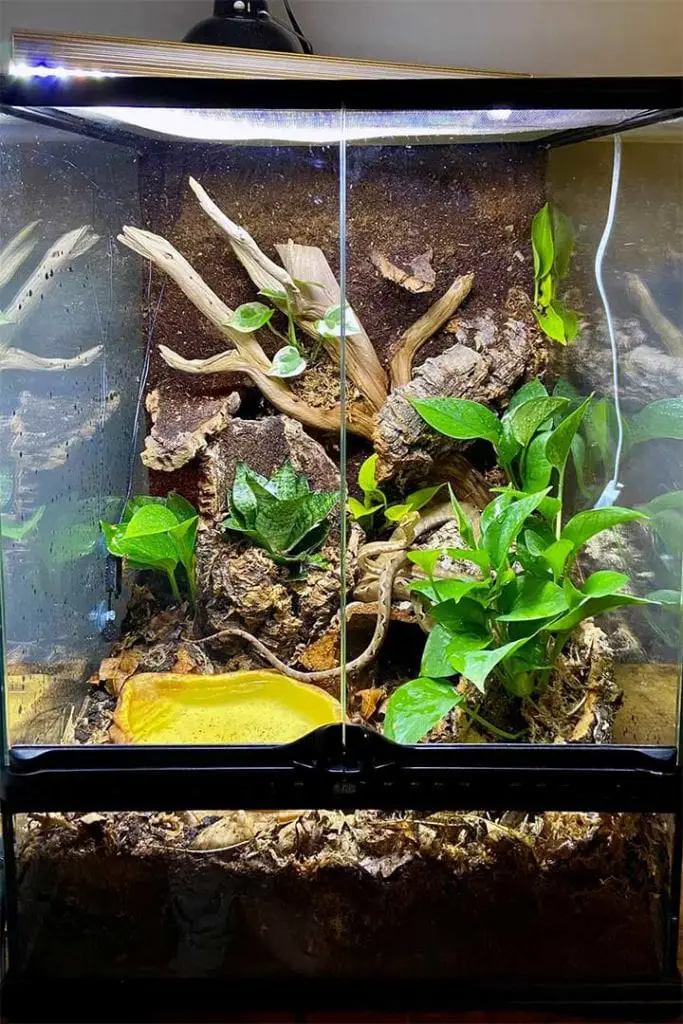
Most should be kept at 70% humidity. This can be difficult to maintain. You need ventilation so your snake has fresh air to breathe, but good ventilation also dries out the air.
If you don’t know how to maintain humidity, your snake can end up dehydrated easily. Your snake will also struggle to shed its old skin, and that can put it at risk for infections.
They do feed easily for the most part. Wild-caught animals have been noted as being more picky with food. They don’t always accept pre-killed prey.
For safety, you should only feed pre-killed since live prey can fight back and injure a snake. If you don’t understand snake body language, you will also be bitten.
These snakes do warn when they will bite, but you need to understand how they signal it. You also need to watch for illness.
Captive-bred animals typically have less health problems, but it is easy to miss the signs if you aren’t an experienced keeper. If you want this species, you need to know how to handle snakes with confidence. This is not a species that will forgive handling and care mistakes easily.
Who is a Good Match
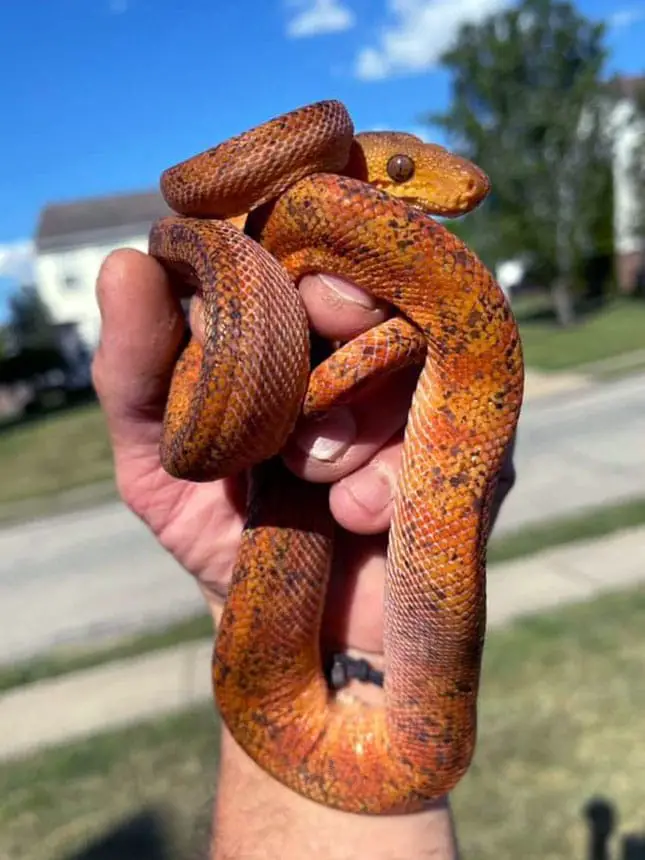
Every potential animal owner should know what they want in an animal companion. For this species, there are a few traits that mark who would enjoy owning an Amazon tree boa.
The first trait is that you have owned snakes before. You know what to look for to determine if a snake is content, sleeping, or stressed. You are also fine with working with the snake to make it calmer. This can take a lot of patience.
You are also fine with the idea that your snake may never warm up to you. You are happy to own an animal that you can just admire. You know how to set up an enclosure.
You know how to keep it warm and humid. You are also fine with spending more since these snakes need larger enclosures since they are an active arboreal species.
You also need to be fine with being bitten. Young or new snakes frequently bite even if they later calm down. If you want a more challenging species, this is a great choice.
They come in plenty of colors.
The fact that these animals are polymorphic means that you never know what a breeding will produce. If you want an interesting species for breeding, this is a great choice. Their genetics and color selection aren’t well understood so you can really learn a lot.
Who Shouldn’t Get This Species
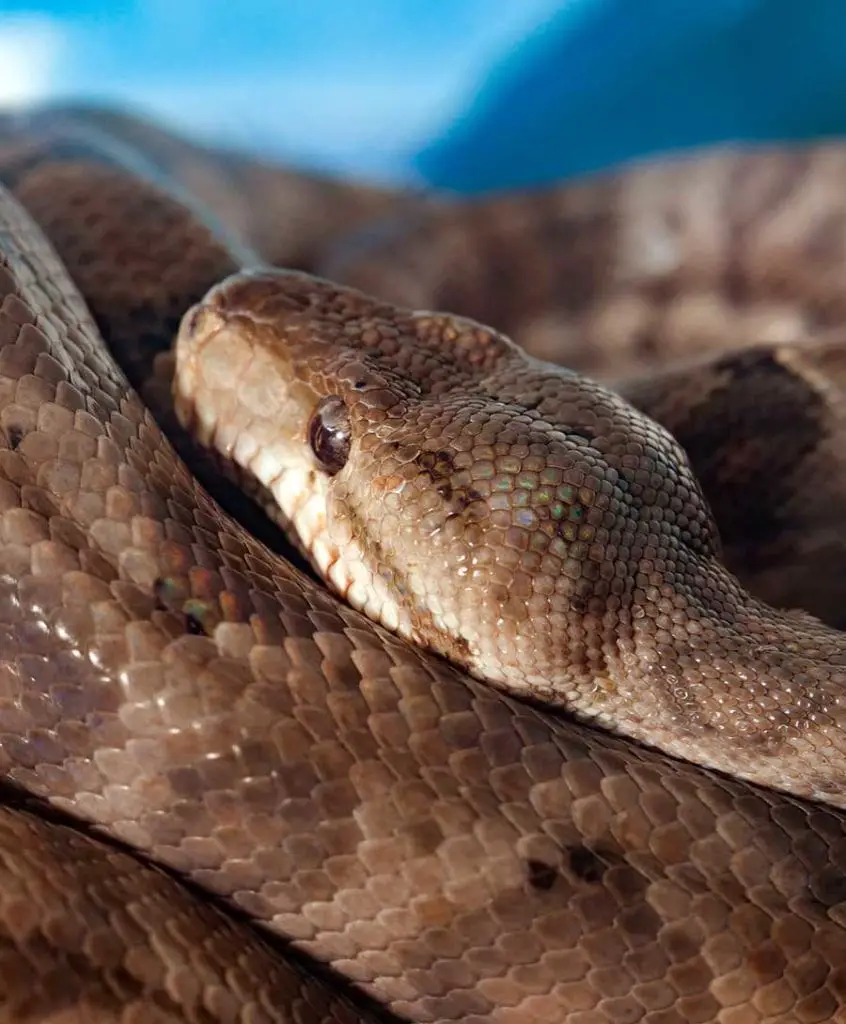
Beginners should not even bother with this species. They do not forgive care mistakes well. They are very defensive when young, so you will be bitten.
If you are nervous of snakes, a more docile species is a better choice. Since they need a more elaborate setup and higher temperatures and humidity, they are trickier to keep.
Most tropical species are harder to keep since you are likely not on a tropical climate. If you want a buddy, it is best to look elsewhere.
Most species of colubrid such as corn snakes, milk snakes, and king snakes are better choices.
Even a western hognose is a better choice. All of these snakes feed well, have easier care requirements, and may be easier to find suitable enclosures.
Ball pythons are another choice, but they are known for being picky and hiding any signs of illness so they can be a bit harder to care for. You also need to feed rodents to Amazon tree boas, so if you are not okay with this, you should pick a different species.
Garter snakes are a bit trickier, but they heavily prefer fish and worms as food. There are many species out there, so look into the snakes to learn more and select the animal you will enjoy the most.
Snakes like for 20 years on average, so they are a long-term commitment. If you are not okay with owning an animal for that long, you shouldn’t get a snake at all. It can be hard to rehome snakes, so you need to be prepared to own the animal for its entire life.
Conclusion
Amazon tree boas are not the best choice if you want a docile buddy. While they can calm down over time, you shouldn’t count on it. They are best for an intermediate snake keeper thanks to higher care requirements. If you have any questions or comments, leave them below.
